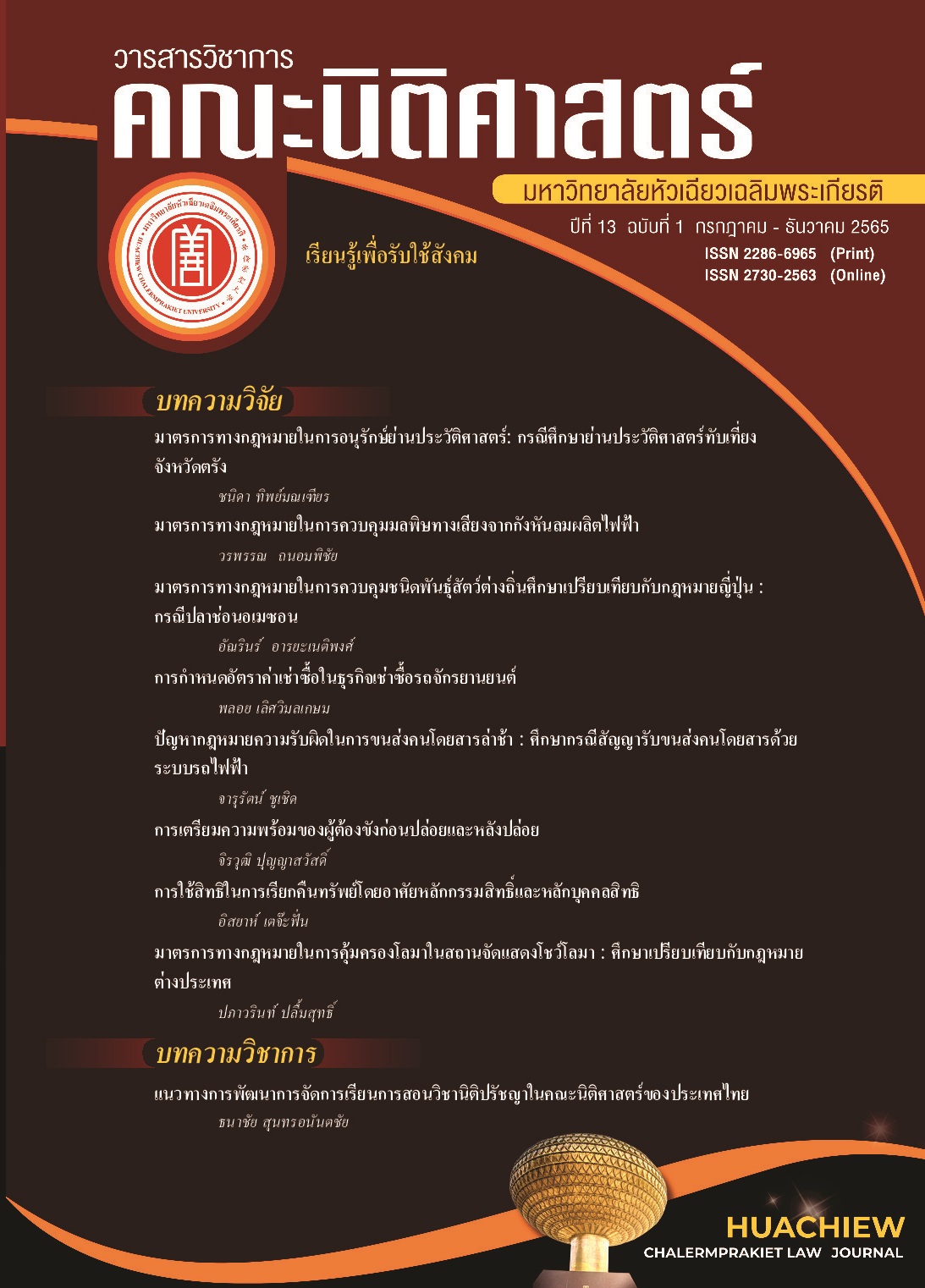The Development Guideline of Teaching and Learning of the Philosophy of Law Course in Faculties of Law in Thailand
Keywords:
Philosophy of Law, Faculty of Law, Teaching and LearningAbstract
The course “Philosophy of Law” is considered important by most faculties of law in Thailand as they include it as a compulsory course for undergraduate law students according to the mandate by Thai Qualifications Framework for Higher Education for the undergraduate degree in law (B.E. 2561). Despite its supposed significance of cultivating the character of the future lawyers to be relevant to the present-day social and legal circumstances, our survey of the teaching and learning of the Philosophy of Law Course in 12 faculties of law in Thailand shows that students regard this subject as trivial, difficult to understand, and having little value for their professional career. Therefore, faculties of law in Thailand as well as organizations involved in the judicial process should work side by side to come up with the guideline for the teaching and learning of this crucial course in order to produce qualified future lawyers that can not only memorize particular provisions, but also perceive and question what is happening in the current situation from the legal context.
References
(10 พฤษภาคม 2564), <http://www.mua.go.th/users/tqf-hed/news/data6/Bachelor%20of%20Laws_m1.pdf>
JustFair Thailand, บันทึกการสนทนาโต๊ะกลมเรื่อง "การพัฒนาหลักสูตรนิติปรัชญาร่วมสมัย”, (15 พฤษภาคม 2564),
YouTube, <https://www.youtube.com/watch?v=0m2-mntwnKU>
Downloads
Published
How to Cite
Issue
Section
License
Copyright (c) 2022 Huachiew Chalermprakiet Law Journal

This work is licensed under a Creative Commons Attribution-NonCommercial-NoDerivatives 4.0 International License.
บทความหรือข้อความคิดเห็นใด ๆ ที่ปรากฏในวารสารฉบับนี้เป็นวรรณกรรมของผู้เขียนโดยเฉพาะ คณะนิติศาสตร์มหาวิทยาลัยหัวเฉียวเฉลิมพระเกียรติ และกองบรรณาธิการไม่มีส่วนรับผิดชอบหรือไม่จำเป็นต้องเห็นด้วยกับข้อคิดเห็นนั้น แต่ประการใด








